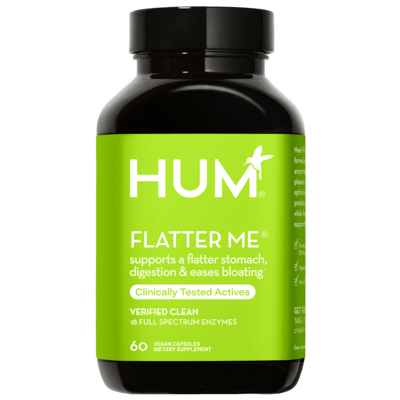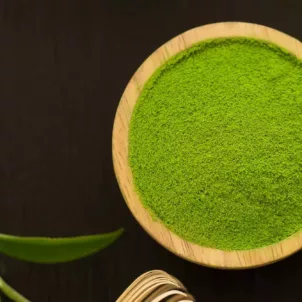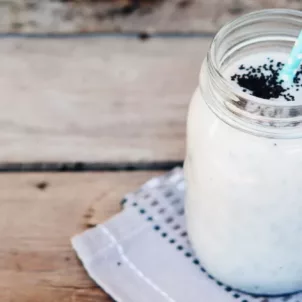The Alt-Milk Poised to Dethrone Almond Milk
By Allie Flinn •
Updated November 19, 2019

Medically Reviewed By
Gaby Vaca-Flores, RDN, CLE
Registered Dietitian Nutritionist
The scoop on pumpkin seed milk, plus a recipe!
Any CrossFit-doing, yoga mat-toting Southern Californian worth her Wunder Unders knows her milk alternatives: Almond milk, coconut milk, and cashew milk are all part of everyday vocabulary. But the rising star of the alternative milk scene is pumpkin seed milk. Lauren Talbot, certified nutritionist and author of Clear Skin Detox Diet, introduced it to us when she showed up at HUM HQ, toting a bag of healthy foods from Erewhon Market for a day of filming recipes. (Erewhon is a leader in the organic and natural foods industry. Bonus: You can find HUM products there!)
So why pumpkin seed milk? For one, it tastes oh-so-good: It’s rich and creamy without being overly powerful in flavor. Plus, pumpkin seeds are nutritional powerhouses that can help improve your skin, hair, and digestion. Here, we outline the benefits of pumpkin seed milk, plus a recipe so you can make it yourself. (Thankfully, it’s super easy.) Now you can say you were drinking pumpkin seed milk *before* it was mainstream enough to be in Starbucks.
Pumpkin Seeds Are FULL of Nutrients
“Pumpkin seeds are an excellent source of plant protein, immune-boosting zinc, and stress-reducing magnesium,” says Talbot. “They can be beneficial in stimulating intestinal movement for better digestion and detoxification.” They’re also a great source of healthy fat that helps hydrate your skin. “And they contain high amounts of tryptophan, which in combination with magnesium, can aid in improving sleep for adrenal support and cell restoration,” she explains.Sprouted Seeds Are Best
“Seeds can be difficult to digest because they’re very dense, low in water, and rich in healthy fats and protein. When not sprouted, seeds contain enzyme inhibitors. These make it harder and often impossible for the body to break down and assimilate the nutrients within the seed,” explains Talbot.They Play Well With These Foods
“Ideally, pumpkin seeds are the most beneficial and most highly detoxifying when consumed with low-starch vegetables, leafy greens, and when consumed as milk,” says Talbot.Avoid Pairing Them With These Foods
“Pumpkin seeds don’t digest well with starches, grains, and animal products,” says Talbot. “They’re dense and require different digestive enzymes than starches and animal proteins.” She recommends eating them in quarter-cup portions without a lot of additional fats, which will help your body digest them properly and not cause bloating. (If you do eat them with animal proteins or starches, we recommend taking HUM’s Flatter Me digestive enzyme.) Here’s a recipe to make your own pumpkin seed milk at home!Pumpkin Seed Milk Recipe
PREP
5
5
COOK
5
5
SERVES
3
3
INGREDIENTS
- 3 cups filtered water
- 1 cup raw sprouted pumpkin seeds
- 1 date (optional)
SUPPLIES
- Blender
INSTRUCTIONS
- Combine all ingredients in a blender, and blend together.
- Pour into a nut milk bag, strain, and enjoy!
Bonus: You can reuse the solid part of the seeds left over in your nut milk bag. Talbot recommends blending them up with garlic and spices to create a spread.
More like this









